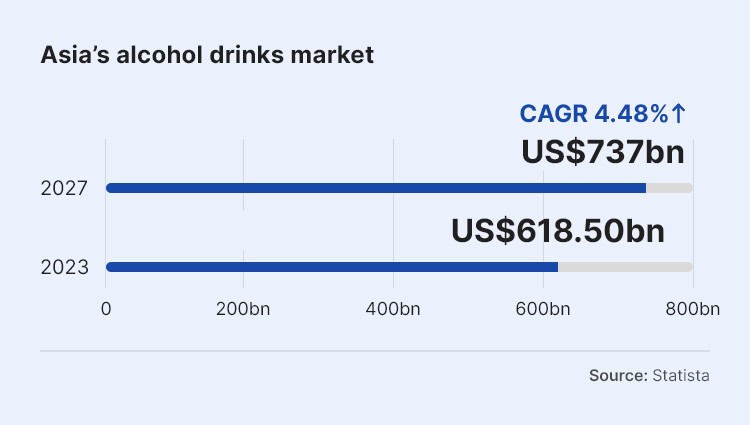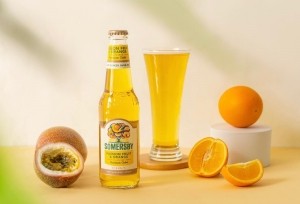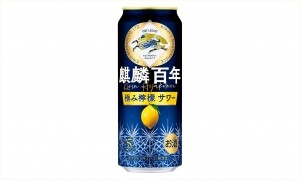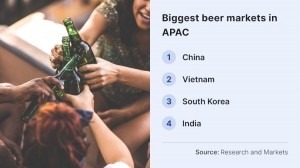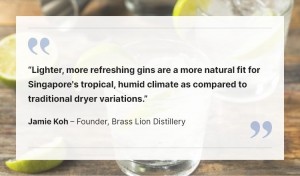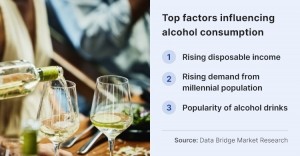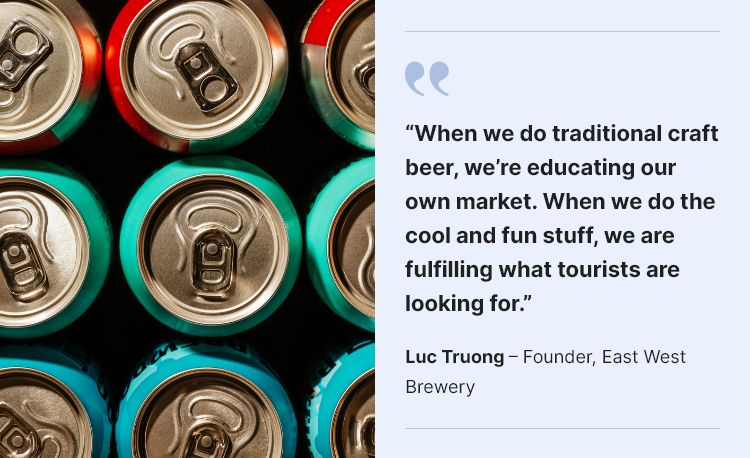In this edition of the FNA Deep Dive, we take a closer look at how the alcohol industry from major multinational brands such as Kirin and Carlsberg to smaller craft brands such as NIO Cocktails and Brass Lion are rolling out new innovations based on the refreshing or fruity flavour theme.
Thank you for reading this post, don't forget to subscribe!The growth in in demand for fruity-focused drinks here can be clearly observed when observing innovation efforts made by major brands such as Carlsberg in Malaysia and Singapore, which is of course best-known for its beer portfolio but rolled out multiple new products for its fruit cider brand Somersby even throughout the COVID-19 pandemic.
Where before in Somersby cider was mostly known as a sweeter alcoholic alternative to beer due to its apples base, in just a few years the firm has launched Somersby in not only its traditional apple but also Pear, Watermelon and most recently passionfruit-orange flavours.
This focus is even more significant when considering the impacts of the pandemic on Carlsberg’s brewery and main production site for the region in Malaysia, which saw a shutdown of several months due to local lockdowns, and then its rapid growth back to record profitability in FY2022 by focusing on premium product innovation – with Somersby leading the pack in terms of new product launches.
“Carlsberg Malaysia saw a 32% increase in sales for our overall premium product category, and we have also opted to further accelerate this premiumisation with [the launch] of the new Somersby Passionfruit and Orange variant [as these are] doing well here in the region, likely due to the refreshing taste,” Carlsberg Malaysia Managing Director Stefano Clini said during the firm’s recent FY2022 press conference.
“[The popularity of such fruity beverages] goes beyond the strict cider category – we also launched the Somersby Apple 0.0 alcohol-free variant in May last year, our maiden alcohol-free brew, and this spurred a lot of growth in the category which saw a 177% leap in sales from the year before.
“The fruity aspect has something to it, as although we don’t have the exact numbers I can say that in terms of our zero alcohol research, we know that Somersby is essentially 10 times bigger than non-alcoholic beers such as Heineken 0.0.
“This sort of premiumisation and innovation is certainly something we will continue to invest behind.”
Also on this fruity innovation track is Japanese alcohol giant Kirin which also is usually best-known for its beers but has been rolling out a lot of fruit-based alcoholic beverages over the past few years.
One of its latest is the new Hyakunen Kiwami Lemon Sour which is based solely on the lemon fruit, using its well-developed beer yeast to ferment lemon juices from various parts of the fruit including the peel to make this new RTD canned chu-hai or shochu highball product.
“Lemon accounts for some 47% of the RTD alcoholic beverages market in Japan as of 2022,” Kirin Corporate Communications Assistant Manager Yutaro Yasuhira told FoodNavigator-Asia.
“It is clearly very well established and popular in most major drinking occasions where alcoholic beverages are involved, such as during meals, because lemon conveys a refreshing sensation and many APAC consumers are on the lookout for this refreshing, even sour flavour to their drinks.
“As such, even though [chu-hai products] are expected to see some impacts when Japan implements liquor tax revisions come 2026, [we still believe this area to be a] major opportunity for innovation.”
Refreshing twists
There is a strong association between fruity flavours and refreshing sensations when it comes to beverages, which many firms are strongly using to their advantage when it comes to crafting products that appeal to Asian consumers.
According to Singapore-based Brass Lion Distillery, creator of the Singapore Dry Gin which is a play on the conventional well-known London Dry Gin, making drinks refreshing is a must when it comes to drawing in consumers in this region not only due to the taste but also the heightened appeal given the hot and humid weather here.
“The Singapore Dry Gin features a lot of botanicals that we have around our region which makes it very different from the traditional London Dry, although it is distilled in the same tradition as the latter i.e. a one-shot distilling and nothing is added after distillation except water,” Brass Lion Distillery Founder Janie Koh told us.
“The London Dry style tends to be more juniper-forward, but for the Singapore Dry we wanted to keep the flavours more tropical and more refreshing to ensure this was more suitable for our climate.
“So things like fresh citrus, pomelo peels, lemongrass and so on – these really bring out that botanical, refreshing quality blend that Asian consumers can enjoy regardless of the weather and the heat.”
Brass Lion has a variety of gins based on the Singapore Dry, including Butterfly Pea gin, Pahit Pink gin, Navy Strength gin and Barrel-aged gin.
“Gins by nature comprise a variety of botanical profiles but here certainly fruits and citrus are flavours we use a lot,” she said.
“Even for the Navy Strength which is stronger than other gins at 57% ABV, the clear notes that come through are citrus-based as it just works.”
Watch the video below to find out more.
Another firm that has taken to fruity and refreshing flavour profiles to innovate their own twists on classic drinks is Italy’s NIO Cocktails which is making strides in the RTD cocktails category and has an eye on the Asian market as a major focus.
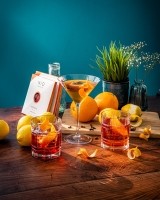
“RTD cocktails have become one of the fastest-growing categories in the alcoholic beverage industry in recent years, and will continue to be in the future,” NIO Cocktails Co-Founder and Sales Director Alessandro Palmari told us.
“Our primary goal is to cover the most popular and representative cocktails in the mixology world [whilst also trying] to tap on cocktail trends of the moment or create twists on classics.
“For example, as a twist on our classic margarita – which is also one of our best-sellers – we are planning planning to introduce the Strawberry Margarita in the summer, a rejuvenating version of the margarita and which follows the fast-growing tequila trend.
“Other flavours we will be launching next are Dry Martini and Disaronno Sour, the latter being the result of a partnership with Disaronno, the world’s best-selling Italian liqueur, and we are seeing a notable peak in growth in our Asian markets such as Japan, Hong Kong and Singapore.”
Fruity bearing on beer
Although the arena of beer is conventionally a wheat and barley driven one, there are various firms in the APAC region that are looking to incorporate a wider variety of ingredients such as fruits in order to create refreshing innovations.
One such example is Vietnam’s East West Brewery, which is based in Ho Chi Minh and revealed to us that three-quarters of its clientele are currently local consumers.
“Vietnam is still considered a bit of a younger [beer] market, so traditional craft beers such as pale ale, IPA and pilsner remain our mainstays in order to do consumer education in the market,” the firm’s Founder and General Manager Loc Truong said.
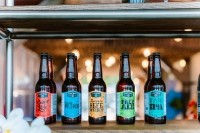
“That said we are definitely experimenting with various ingredients such as fruits, caramel and vanilla – these appeal to travellers from well-developed markets. Some of the local ingredients that often make it into these products are local mulberries, raspberries, kumquat, guava and pineapple.”
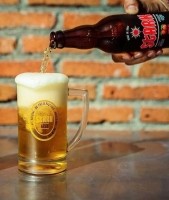
Over in Indonesia, local craft beer brewery Stark Craft Beer highlighted that the key in this market is to adjust flavours to the local Indonesian palate, which includes the use of rice and to make beers sweeter – an endeavour that often calls for the use of fruits.
“Adjusting flavour to the Indonesian palate requires some innovation, for example our Pilsner is a bit different from regular Pilsner as it uses 40% Balinese rice and 60% malt,” the firm’s Brand Manager Ayu Sekar Ratmowiyono told us.
“Our IPA is also not as bitter as the original as Indonesians like something sweeter, which is why we created items such as mango ale [and] lychee ale which also appeals to the female consumers.
Similar to East West Brewery, Stark Craft Beer also cautioned against overenthusiastic flavour innovations due to the market still being considered a very novel one in Indonesia.
“Craft beer culture is relatively new in Indonesia – so a lot of as aspects still require education as the product awareness is generally low,” Ayu added.
“In addition to localised marketing based on each market, the focus for us is to produce consistent beer flavours that can provide consumers with a holistic experience that hits all the five senses – so a more aromatic beer with a nice colour and sweet aftertaste.”
Challenges ahead
Although the fruity and refreshing trend has proven to be something of an important trend providing significant growth for the alcohol sector in this region, this innovation is unlikely to mitigate practical challenges that the sector still faces, from taxation woes in Japan to inflationary cost challenges all over the world.
Carlsberg has spent the past few years strongly pushing its premiumisation strategy, highlighting this as a ‘win-win’ in the face of all of these challenges – but this year the firm appears to be opening up more avenues for its value-oriented, affordability focused brands.
“Premiumisation has always been a core strategy for us due to it being a win-win – the consumers get high quality, great-tasting products and we get to protect our margins,” Clini told FoodNavigator-Asia.
“But this does not mean that value-oriented products are not important to us especially in these trying times where grocery spend is lower on average – we will always continue to support the affordable product category with products such as Carlsberg and SKOL.
“SKOL was introduced as a value option and also one for consumers that have a bit less disposable income [for premium options] – At this stage it is hard to see exactly how the consumer trends an purchasing preferences are likely to change, so we must cater to all possible consumer needs.”
Low-to-no alcohol (NOLO) innovation has also emerged as a major innovation opportunity for big brands like Carlsberg and specialised firms in this area that only make NOLO drinks – but for smaller firms, there is rarely bandwidth to enter this space in addition to regular alcohol production.
““I don’t think we’re ready to do low alcohol or non-alcohol products at the moment because we’re still far off from [having really educated the Vietnamese market on] what is good beer, what is craft beer,” Truong added.
“And if there is beer without alcohol, then it’s almost like a, you know what, I’ll just go for another product. But maybe later on it could be something that we may need to follow the market on in the future.”
Similarly, Ayu stressed that the Indonesian market still tends to see stronger alcoholic products as ‘better’, so NOLO products are not in the pipeline just yet.
“I think Indonesian market is more interested in something that contains a higher alcohol taste right now,” she said.
“Our market palate is not as adventurous, so consistency will remain the key focus for now.”
Also, the alcohol market in general continues to face the challenges of counterfeit alcohol all over the region, from Malaysia to India – during the pandemic, supply shortages and lockdowns drove up the illicit beer trade significantly in Malaysia, and in India alcohol has consistently topped the list of most-counterfeited products over the past few years.
“The alcohol industry has always been one of the top targets for counterfeiters – Criminals take advantage of the demand-and-supply gap to bring in illegal and fake products to the market,” Authentication Solution Providers’ Association (ASPA) governing body member Ankit Gupta told FoodNavigator-Asia.
“Consumers pay a premium for packaged and branded products to be assured of safety and well-being – but with the prevalence of fake products, they are exposed to the risk of harm to their health, well-being, and even life.
“Between 2016 and 2022, more than 6,000 people in India have died after consuming spurious liquor.”

